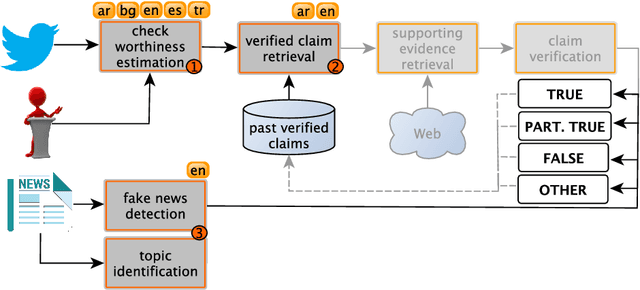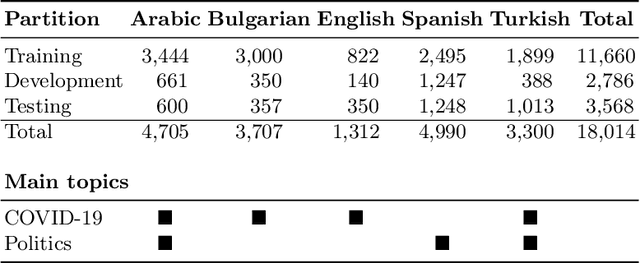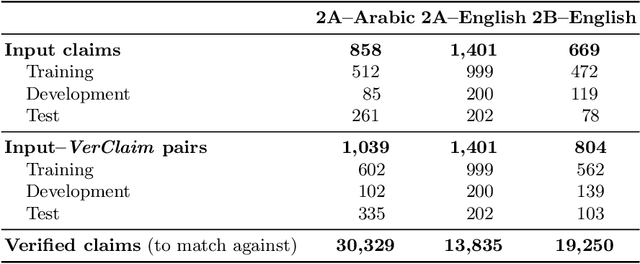Julia Maria Struß
The CLEF-2025 CheckThat! Lab: Subjectivity, Fact-Checking, Claim Normalization, and Retrieval
Mar 19, 2025Abstract:The CheckThat! lab aims to advance the development of innovative technologies designed to identify and counteract online disinformation and manipulation efforts across various languages and platforms. The first five editions focused on key tasks in the information verification pipeline, including check-worthiness, evidence retrieval and pairing, and verification. Since the 2023 edition, the lab has expanded its scope to address auxiliary tasks that support research and decision-making in verification. In the 2025 edition, the lab revisits core verification tasks while also considering auxiliary challenges. Task 1 focuses on the identification of subjectivity (a follow-up from CheckThat! 2024), Task 2 addresses claim normalization, Task 3 targets fact-checking numerical claims, and Task 4 explores scientific web discourse processing. These tasks present challenging classification and retrieval problems at both the document and span levels, including multilingual settings.
Overview of the CLEF--2021 CheckThat! Lab on Detecting Check-Worthy Claims, Previously Fact-Checked Claims, and Fake News
Sep 23, 2021



Abstract:We describe the fourth edition of the CheckThat! Lab, part of the 2021 Conference and Labs of the Evaluation Forum (CLEF). The lab evaluates technology supporting tasks related to factuality, and covers Arabic, Bulgarian, English, Spanish, and Turkish. Task 1 asks to predict which posts in a Twitter stream are worth fact-checking, focusing on COVID-19 and politics (in all five languages). Task 2 asks to determine whether a claim in a tweet can be verified using a set of previously fact-checked claims (in Arabic and English). Task 3 asks to predict the veracity of a news article and its topical domain (in English). The evaluation is based on mean average precision or precision at rank k for the ranking tasks, and macro-F1 for the classification tasks. This was the most popular CLEF-2021 lab in terms of team registrations: 132 teams. Nearly one-third of them participated: 15, 5, and 25 teams submitted official runs for tasks 1, 2, and 3, respectively.
* Check-Worthiness Estimation, Fact-Checking, Veracity, Evidence-based Verification, Detecting Previously Fact-Checked Claims, Social Media Verification, Computational Journalism, COVID-19
 Add to Chrome
Add to Chrome Add to Firefox
Add to Firefox Add to Edge
Add to Edge